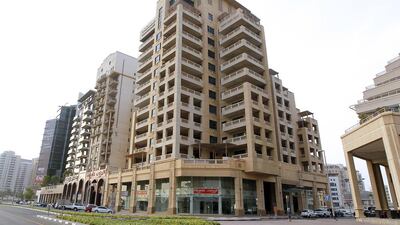Most people are convinced that housing shortages are the result of greedy landlords charging rents that are unjustly high.
Landlords are also held responsible for the low quality of affordable housing — apparently their fixation on short-term financial returns stops them from maintaining properties in a satisfactory manner, aided by their callous disregard for the interests of tenants.
Therefore, in an attempt to tackle the housing shortages, especially for the poorest segment of society, a favoured policy among policymakers is rent controls. Such measures are common across the Arabian Gulf: Abu Dhabi introduced a rent cap in 2006 to prevent soaring rents when the population was rising rapidly, and housing construction was failing to keep pace. But do the good intentions of rent-control advocates result in good outcomes?
Price controls in general, as well as the specific case of rents, are a well-studied phenomenon in economics and, for the most part, they do not serve their intended purpose. In fact, like many populist government policies, they end up hurting the very groups they are nominally designed to assist.
The total stock of housing — similar to most commodities — is not fixed. The total number of units available for rent or purchase at any given point in time is determined by the volume of resources dedicated by capitalists to the production of housing, including land, material inputs (concrete, wood, steel and so on) andlabour (construction workers, equipment operators and foremen, for instance). Therefore, if society wants to have more housing, unless the government is going to produce or commandeer housing units, private capitalists have to be given an incentive to produce more housing units.
In particular, they have to be convinced that building housing units serves their interests better than any one of the numerous alternative uses they have for these inputs. For example, they could build a supermarket, a hotel, or a factory; or they may choose to transform the land into a farm.
The key variable in determining the option that capitalists go for is the financial return they can earn compared with the alternatives. If market conditions allow capitalists to earn a lot from renting out their housing units, and modest amounts from opening a store or a restaurant, then they will choose to produce more housing.
Consequently, if the government imposes a ceiling on rents, then it is also capping the attractiveness to capitalists of producing housing units. If the rent control is quite stringent compared with the rent level that would balance markets, then the rent control will cause a shortage directly. Prospective lessors will demand more units than are available and capitalists will fail to respond to the shortage because they are being legally denied the financial compensation they require to commit the necessary resources. In the absence of rent controls, shortages are transient because rents will rise to the level required to induce sufficient supply. Therefore, rent controls create sustained housing shortages by impairing the market’s ability to solve shortages.
Unfortunately for tenants, the fallout from rent controls goes beyond shortages: they also lead to a deterioration in the quality of housing units. Just like the production of housing units, the maintenance of housing units is the result of purposeful decisions by capitalists to dedicate resources to the activity, and rent controls forcibly reduce the financial rewards they can earn. Thus, the imposition of rent controls inevitably results in the under-maintenance of housing units, reducing quality of life and possibly even creating a safety risk to tenants.
The experience of Communist economies prior to 1990 confirms that this logic extends to most commodities: countries such as the USSR, where price controls were common, were characterised by extreme shortages and terrible quality. Would you not be reluctant to work, and deliver lower quality work, if your wages were artificially capped?
Everyone with knowledge of housing markets will concede that rent controls create shortages and diminish quality.
However, a legitimate response would be that the alternative, unrestricted rents, is potentially worse, because it guarantees that low-income groups are priced out of renting. This is a key driver of the Abu Dhabi Government’s decision to impose rent caps. In effect, governments may decide they prefer shortages that allow at least some low-income groups to afford houses, to a balanced housing market where the less fortunate can never summon the necessary resources.
In the next article in the series, we will see why some rent-control regimes systematically discriminate against low-income households, with the lucky tenants who manage to secure housing being disproportionately rich; while alternative rent control regimes simply drain the resources of low-income households in other ways.
Should we, therefore, simply let the market determine rents, and accept the pricing out of low-income households as inescapable collateral damage? In the final article in the series, we will explain why governments persist with rent controls, despite their apparent ineffectiveness, and we will also examine some of the effective alternatives for defending the rights of all income-segments to safe, quality housing.
We welcome economics questions from our readers via email to omar@omar.ec or via twitter at @omareconomics.


